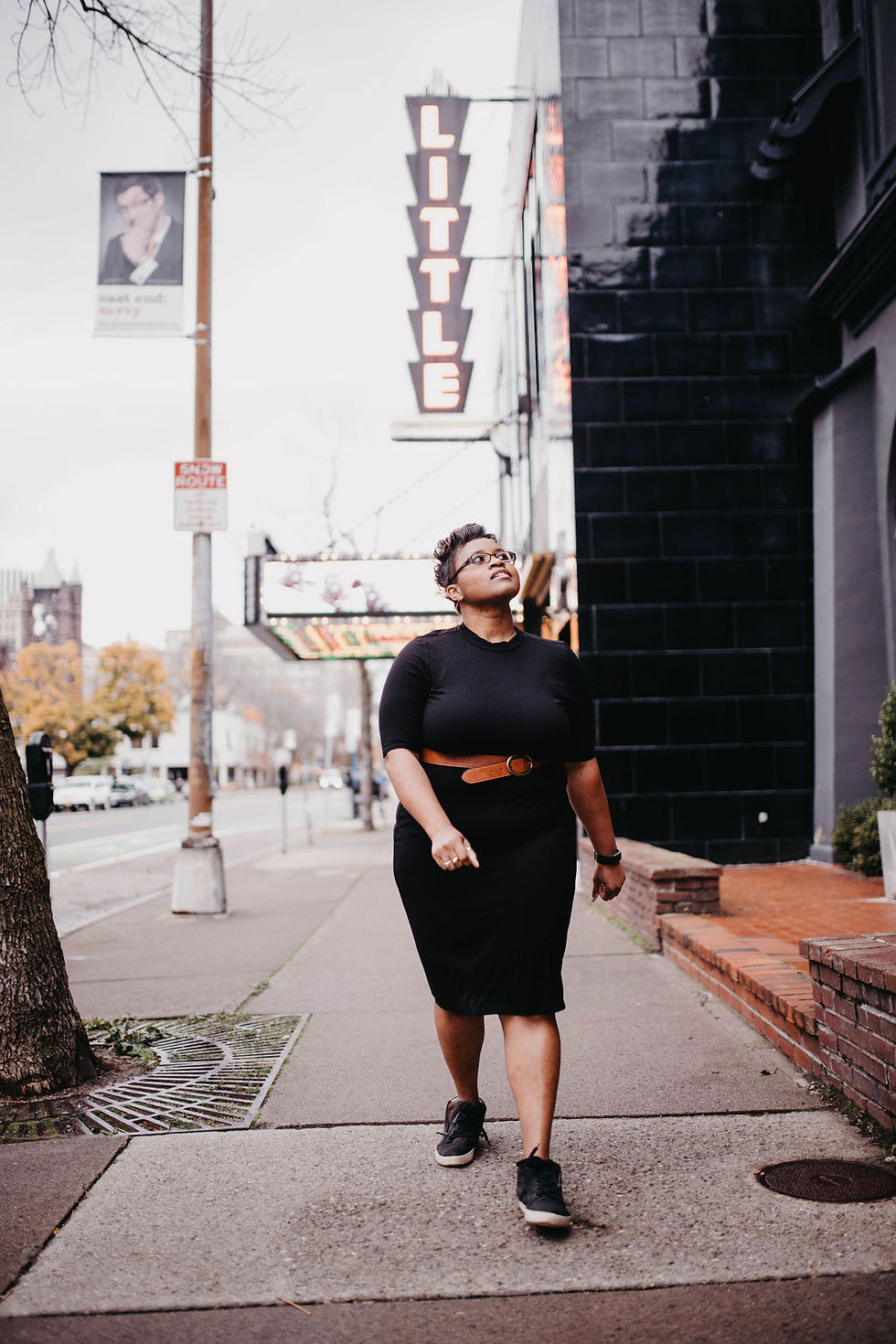Why I Celebrate Black History Month
- Jackie McGriff
- Jan 30, 2022
- 3 min read

In recent years, I’ve come to the realization that I’ve learned more about Black History as an adult than I have in all of my years as a young student. Why is that? Why weren’t we told about the Tulsa Massacre or Reconstruction? Why wasn’t I introduced to Malcolm X, The Black Panther Party, Freddie Hampton, Lorraine Hansberry, and James Baldwin? Why do we talk about Dr. Martin Luther King Jr. and Rosa Parks as if they’re the only ones who contributed to the civil rights movement?
I feel as though Dr. King’s Birthday was yesterday and yet we’re still devoting that day to community service rather than taking action to make sure that everyone has equitable access to food, shelter, quality education and healthcare, voting rights, and a living wage. I could go on and on, but the fact that our history is taught through a Eurocentric lens and that African-American studies is an elective you can take if you have the privilege of attending college is wrong.
I no longer have any grandparents to tell me about their history and what was going on when they were growing up, but I still have my mother to share her experiences. The history is RICH in our relatives; they are our history. We have just as much access to them as we do books and documents that tell these same stories yet it’s not taught to the general public. We continue to talk about the history that we learned from our older relatives and yet it’s left out of the conversation when sharing with a much larger group. Some states are working tirelessly to bring to legislation to have these stories not be told in our schools, so the reason why we need Black History Month remains clear.
It’s restoring our education. Learning history is about learning how we got to this moment in time so that we can move forward to avoid either repeating or committing similar injustices that would leave more people without essential things to live on and actively participate in local and national elections (as is their right). We need to think of analyzing history like a surgeon would a deep wound. Our history is full of atrocities that have been committed by people in economic and political power (the wounds) and we have yet to heal from this as a country. Trauma from our past continues to rear its ugly head and to move on, we must heal properly. We CANNOT move on without doing the surgical work required. One of the MANY ways that we do this is by learning our nation’s history—the real, unfiltered history. Much of its painful, but to get to healing, you must go through the pain.
Not all history, especially where it concerns Black people, is painful. There’s joy, victory, and success and we need to hear those stories too! We must learn ALL of it and learn FROM it.
My challenge to anyone reading is to take what you learn from this month and if you’re an educator, challenge the curriculum – go BEYOND Dr. King, Rosa Parks, and Harriet Tubman. If you’re a professional outside of education, you have an opportunity to share what you learn with your coworkers and loved ones. What do you learn from each story you hear? How might our society look more equitable with current laws that are in place? How can you work this into your everyday life rather than just for Black History Month?
I celebrate Black History Month to not only learn more about people who look like me and share my lived experiences, but to also get a picture of who we are as people (as opposed to what I’m regularly shown in TV, media, and news – although, it is getting better but not nearly fast enough) and to see how we might make real positive change in our community. It starts with education that turns into an idea that turns into action. Once you learn more about Black History, what are you going to do with the knowledge that you have? So here’s to Black History Month. Here’s to Black History.



Comments